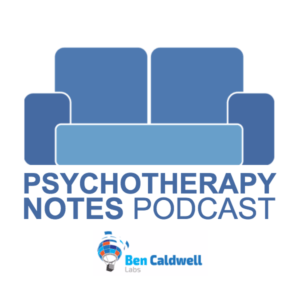 Discussions about California’s “six-year rule” for associate marriage and family therapists (AMFTs), clinical counselors (APCCs), and clinical social workers (ASWs) often turn confusing. There’s a simple reason for that. When people refer to California’s “six-year rule,” they actually might be referring to either one of two different rules, both of which have six-year timeframes. Here’s a breakdown of both six-year rules.
Discussions about California’s “six-year rule” for associate marriage and family therapists (AMFTs), clinical counselors (APCCs), and clinical social workers (ASWs) often turn confusing. There’s a simple reason for that. When people refer to California’s “six-year rule,” they actually might be referring to either one of two different rules, both of which have six-year timeframes. Here’s a breakdown of both six-year rules.
Podcast episode 3: Student loan debt
 No point mincing words here: Student loan debt is crushing the mental health professions. Perhaps it’s crushing you, too. According to a 2014 American Psychological Association study, the average recent graduate of an accredited PsyD program finishes their studies with $200,000 in student loan debt. Social workers similarly decry their debt loads, with at least one going so far as to declare the entire social work profession “untenable.”
No point mincing words here: Student loan debt is crushing the mental health professions. Perhaps it’s crushing you, too. According to a 2014 American Psychological Association study, the average recent graduate of an accredited PsyD program finishes their studies with $200,000 in student loan debt. Social workers similarly decry their debt loads, with at least one going so far as to declare the entire social work profession “untenable.”
In this episode of the podcast, we talk about student loan debt, and how it’s impacting those coming into the mental health professions. We review how $200,000 in debt can easily wind up being more than $700,000 by the time it’s finally paid off.
How did we get here? Part 2: Educational requirements
 In a previous post, we discussed the required hours of supervised experience for psychotherapist licensure and the history of that requirement. In this post, we examine the ever-growing educational requirements for a master’s degree that leads to licensure as family therapist, clinical social worker, or counselor.
In a previous post, we discussed the required hours of supervised experience for psychotherapist licensure and the history of that requirement. In this post, we examine the ever-growing educational requirements for a master’s degree that leads to licensure as family therapist, clinical social worker, or counselor.
Podcast episode 2: Kim Madsen, California BBS, on license exams
 For the opening episode of our podcast, we talked about why license exams don’t work, but we should keep them anyway. In this follow-up, we talk with Kim Madsen, the Executive Officer of the California Board of Behavioral Sciences. The BBS licenses marriage and family therapists (LMFTs), clinical social workers (LCSWs), and professional clinical counselors (LPCCs). You may be surprised at what she has to say about the license exam process.
For the opening episode of our podcast, we talked about why license exams don’t work, but we should keep them anyway. In this follow-up, we talk with Kim Madsen, the Executive Officer of the California Board of Behavioral Sciences. The BBS licenses marriage and family therapists (LMFTs), clinical social workers (LCSWs), and professional clinical counselors (LPCCs). You may be surprised at what she has to say about the license exam process.
Does continuing education matter for prelicensed therapists?
 Therapists and counselors never stop learning over the course of their careers. The educational process starts in graduate school, where trainees and students absorb as much information as they can within and outside of the classroom setting. In California, following graduation and registration with the BBS (Board of Behavioral Sciences), associate marriage and family therapists seek work and training opportunities that will allow them to continue expanding upon their knowledge of therapeutic techniques and treatment modalities. Once licensed, marriage and family therapists are required to obtain CEUs (Continuing Education Units*) in order to continue practicing.
Therapists and counselors never stop learning over the course of their careers. The educational process starts in graduate school, where trainees and students absorb as much information as they can within and outside of the classroom setting. In California, following graduation and registration with the BBS (Board of Behavioral Sciences), associate marriage and family therapists seek work and training opportunities that will allow them to continue expanding upon their knowledge of therapeutic techniques and treatment modalities. Once licensed, marriage and family therapists are required to obtain CEUs (Continuing Education Units*) in order to continue practicing.
We know that continuing education is important, but do continuing education hours matter for prelicensed therapists? CEUs are required in order to renew licenses with the BBS, but not registrations; therefore, the answer may seem like a straightforward “no.” The more complex answer is that CEUs can be beneficial for prelicensed therapists in certain situations.
